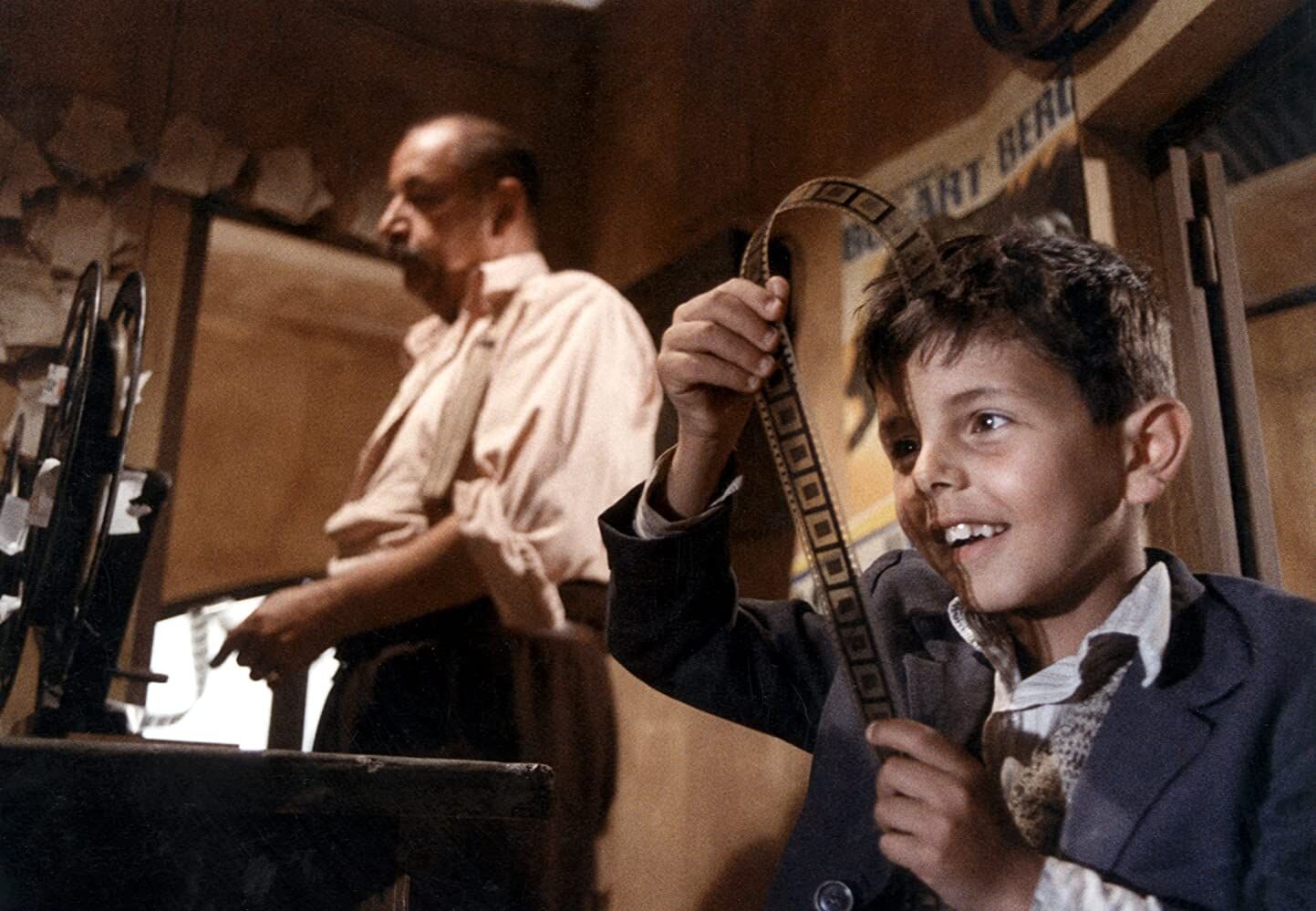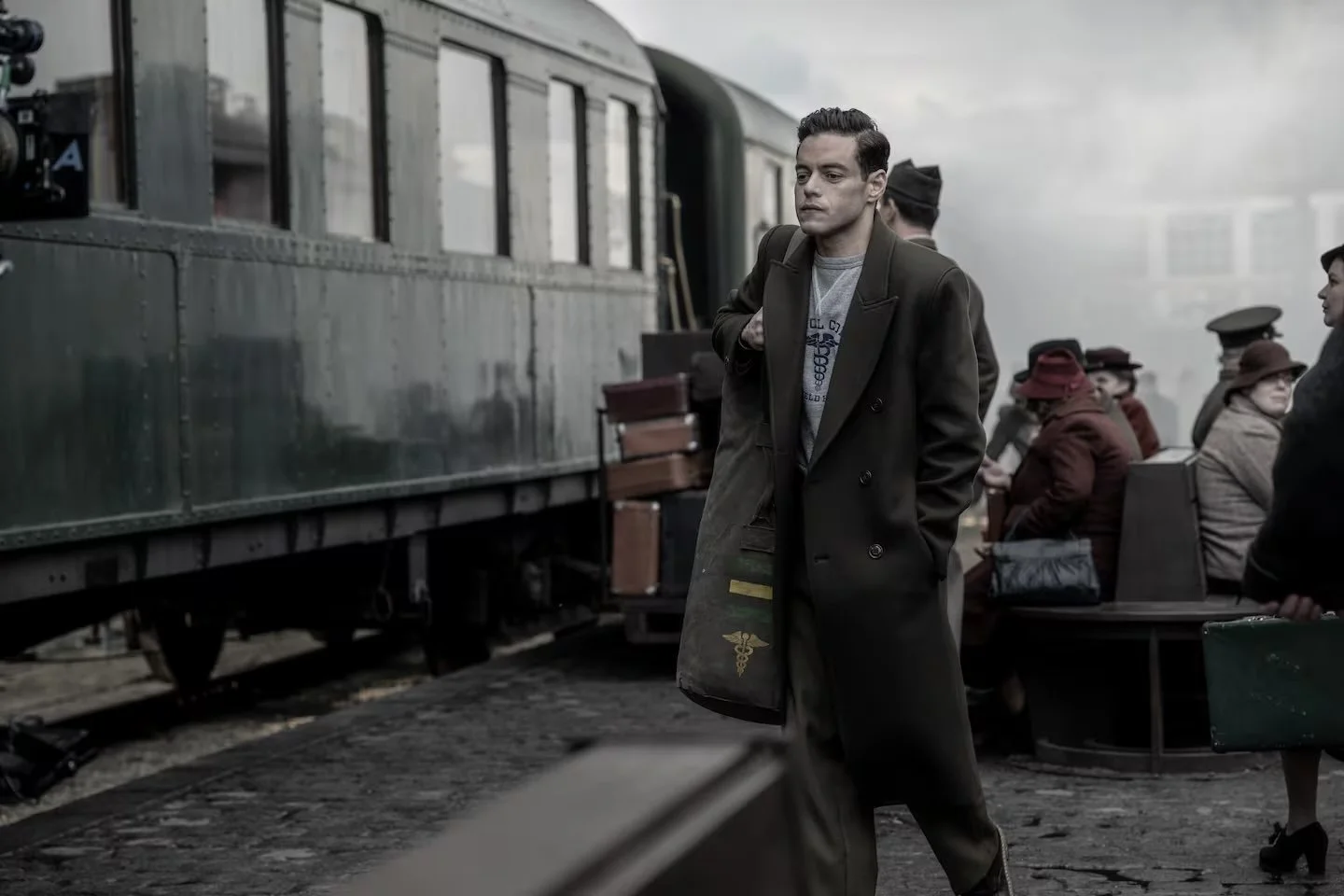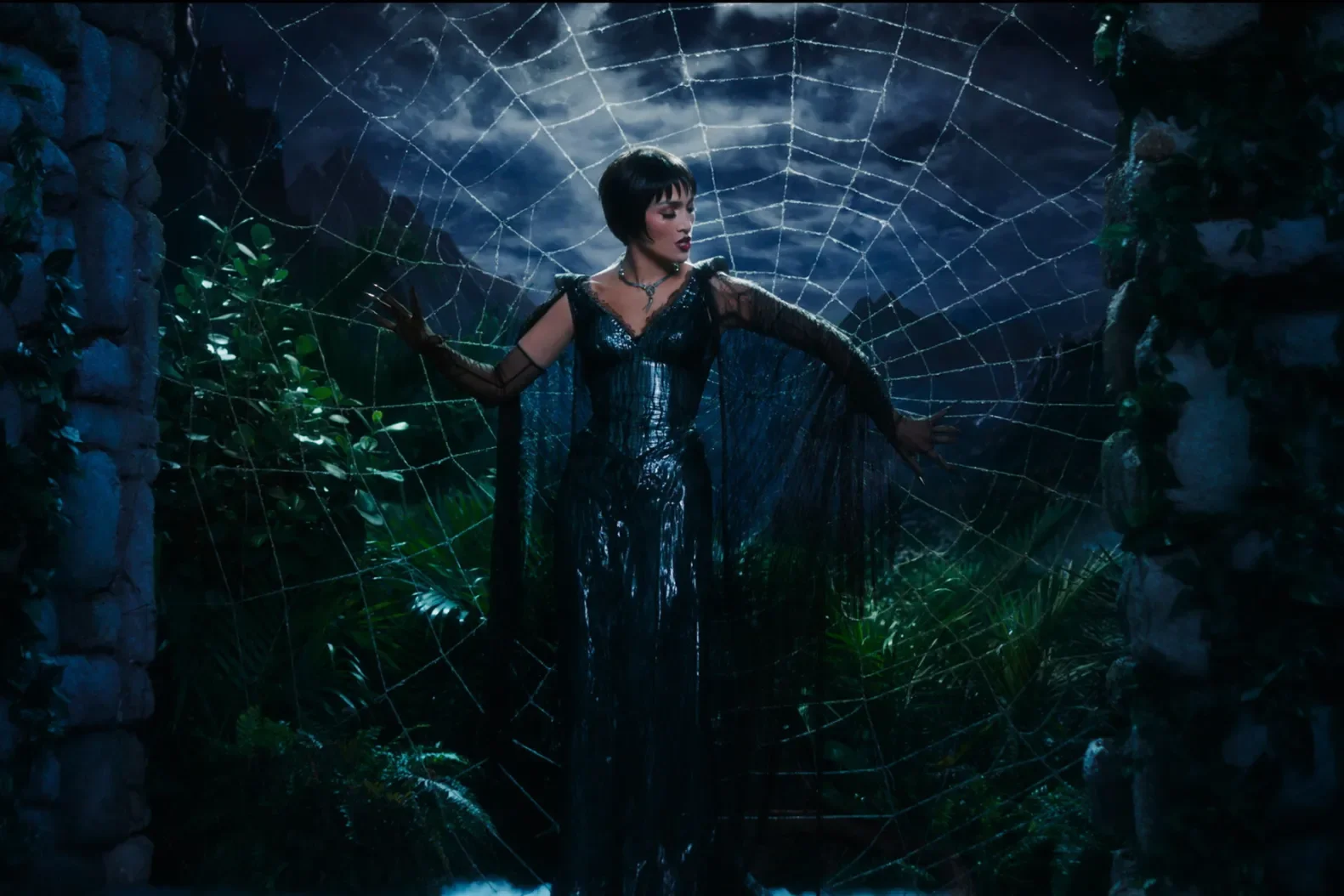Retrospective: Cinema Paradiso
Cinema Paradiso is a film engrained with the sweet and sentimental feeling of nostalgia. It is one that evokes memories and moods reminiscent of times when movie theaters and gatherings were places of great joy and shared camaraderie. It is a movie with personality, taking its viewers through the highs and lows of life, within which we see our own experiences and personal connection. What follows is an introspection of the reasons why I believe this film is an Academy Award winner and said to be one of the best foreign-language movies of all time.
Told mainly in a chronological flashback sequence, Cinema Paradiso follows Salvatore Di Vita (Salvatore Cascio), a world-renowned director, and his reflection of growing up in his native war-torn Sicilian town. As a young boy, his deep love of movies stems from the Cinema Paradiso’s oasis, the town’s prominent location for locals to gather and watch the latest picture. His lifelong bond with projectionist Alfredo (Philippe Noiret) teaches him the power of movies, youth, and future aspirations. A large part of the movie focuses on Salvatore’s (or “Toto” as he is called by those close to him) coming of age in a small Italian town. Toto’s childhood presents an image of an impish Sicilian bambino, falling asleep as an altar boy during the middle of church service, fooling around in school and the streets, and trying to catch a glimpse of dramatic 1940s movie kisses when he sneaks into the projectionist room. With his father in the war and his mother working, Toto spends his days sneaking into the Cinema Paradiso, continually watching movies and begging Alfredo to teach him how to be a cinema projectionist. Eventually, he gets his way, and from then on, his life takes a course devoted to cinema.
I think one of the reasons why this film is so compelling is Toto’s realistic character development. Toto’s formative years deal with first loves, family, friendship, curating a passion, and dreaming about life beyond the small theater that has taken up so much of Toto’s fond boyhood memories. Toto is not the perfect protagonist. Sometimes he leaves us questioning the decisions he makes, notably in his romantic life and how it has changed from childhood to adulthood. Though, upon Toto’s reflection, we understand the realistic motives that led to certain choices. There is a dimension to Toto as a person. When we dive deeper, we see how the internal and external conflict he faced made him dynamic — the struggle between loving and appreciating the town and people that taught you true love (for Toto, both his love of film and his first romantic love), and the realization that you must leave this small town and mentor in order to untap your potential and make it professionally. This struggle is never articulated, but it is more than felt, and more than relatable as we place ourselves in Toto’s shoes, dreaming of what we could be and accomplish if we could let go and work to discover.
And so, as I write this, I am thinking about how this film brought so many small personal experiences to life. During the movie, my nonna told me how much Toto reminded her of her father and his stories from Sicily, and I believe that says something about the genuine nature of the movie and its characters. It isn’t far-fetched. It is plain in aesthetic and uncomplicated. Special effects and big-name Hollywood actors don’t form the makeup of the movie’s message and movement, and maybe that’s where the magic lies. The inherent simplicity and arc of this person’s life make us laugh and cry. It makes us remember why we love movies so much and the community that forms from them. I empathized with the tribulations, excitements, passions, and overwhelming love that occurred throughout Toto’s life for those two hours. With the emergence of big blockbusters, reflecting on what makes a modest film so moving brings me back to the belief that movies should be able to change perceptions and afflict emotions without swamping one in dramatics. It is a story that makes me consider why I love watching movies and listening to stories; maybe it’s the Sicilian grandma I grew up with and watched many old movies with. Perhaps it’s simpler, maybe it’s the storytelling that is so universal in its effect on collectives, or maybe it’s a combination of these intra- and interpersonal experiences that leave me smiling when the credits begin to roll. Whatever it is, I’m thankful for those moments of movement and stillness that happen when a movie is as beautifully expressive as it is humble like Cinema Paradiso.
Popular Reviews







